|
|
|
|
|
|
Pop culture and media often shape how we think about the world. As we escape indoors from the summer heat and unrelenting pandemic, look for how issues related to reproductive freedom and dignity are portrayed in the media we consume. What are the stories being told? Who’s telling them? What questions are they asking? How can we be asking better questions, telling better stories? Below are a few things we’ve been watching and reading lately:
Disclosure: Trans Lives on Screen
Released in June on Netflix, the must-watch documentary Disclosure “is an unprecedented, eye-opening look at transgender depictions in film and television, revealing how Hollywood simultaneously reflects and manufactures our deepest anxieties about gender.” Helmed by Laverne Cox of Orange is the New Black, Disclosure lays out the history of onscreen depictions of trans lives, both positive and negative, and explores how such media shapes society’s understanding of gender. This powerful documentary is a lesson in empathy and critical thinking.
The Book of Longings by Sue Monk Kidd
What if Jesus had been married? Although modern Christians take for granted that Jesus never had a wife, the Bible doesn’t definitively say. That’s the central question of this latest work of fiction from Sue Monk Kidd, author of The Secret Life of Bees and Dance of the Dissident Daughter. The Book of Longings is a tale of the life of Ana, Jesus’s (fictional) wife. Ana longs to be a writer. Like women have done since the beginning of time, Ana (mild spoiler alert) uses herbs and tinctures, with the full approval of her husband Jesus, to prevent pregnancy so that she can fulfill her dream of studying and writing about the lives of women.
The Magicians
Syfy network adapted Lev Grossman’s trilogy of novels into a five-season hit show. The show takes the books–a grown-up reflection on The Chronicles of Narnia, the Harry Potter series, and similar books–and adds on a deeper reflection on relationships and sexuality, including SPOILER ALERT a magical abortion.
Born Behind Bars
This docu-series shows the lives of women and their babies as they live together in the “Wee Ones” dormitory in a maximum security women’s prison in Indiana. The show is produced in a way that reminds me of TLC shows–plenty of dramatic music, replays of emotional moments–but the content lends to so much reflection on what it means to be able to have agency as a mother and as a person in our society. The women in the show by and large mention their drug addiction (often meth), generational abuse, and lack of health care and education. Watch with an eye toward repro justice and human dignity and wait for the questions to bubble up. Here are a few:
Why aren’t the women in drug rehab?
I imagine that it is rare for ANY woman to raise her baby from 0 to 12 months. How many mothers/parents get to do that?
Again, why isn’t there a rehabilitation and therapy program for everyone in this prison?
Here are a few more resources that look at repro dignity and contemporary media:
From Re-Wire News: 5 TV Shows and Movies That Realistically “Depict Abortion—All Available to Stream Online”
Abortion Onscreen is a fascinating project by ANSIRH (Advancing New Standards in Reproductive Health) at UC San Franciso. (Linked in the above article) I enjoyed looking through the different series and storylines that featured abortion over the past few years. They also have a census of the past 100 years of film regarding abortion.
Want more recommendations for podcasts, documentaries, and books? Check out a few of our past blog posts:
“Doing the work” can mean a lot of things. For some, the work is meeting the direct needs of the community through sex education, or child care, or abortion care. For others, the work is affecting change through policies and laws that create more just and equitable society. And for still others, the work is creating a vision for the future no matter what the current political or social circumstances might mean.
At Faith in Women, we take the long view of what it means to “do the work” of reproductive dignity and human rights, and for us, investing in transformational relationships and a resilient community is a big part of our long term strategy.
Last year Faith in Women hosted the Leaders of Moral Courage Fellowship, exploring the intersections of courage, faith, and community in reproductive health, rights, and justice work. One of the most powerful outcomes of the project was the “fellowship” itself- the new community forged by the fellows. The cohort created a basis for understanding, learning, growing, and acting that looked different than many movement spaces. A sense of love and collaboration grounded in spirituality pervaded that space, even when conflict arose.
Leaders of Moral Courage was a great example of building an alternative system/space/community where things are how we want them to be. With such a community supporting us, when the outside world doesn’t live out those same ideals, we’re equipped and energized to make changes.
Be encouraged as you do your part of the work. Thank you for being a partner in creating a world filled with justice and light and reproductive dignity for all.
Schools are closed, camps are canceled, and many daycares are closed as well. Working parents are expected to continue to work full-time and also become care-givers for their children.
Even though our society does not recognize care-giving as valid work that deserves fair pay, providing care is indeed work. People whose “Plan A” care situation has been canceled now find themselves working an extra job- caring for children.
In Mississippi there are no state-wide closures of childcare centers. This stance by the state government means that either:
Therefore, money and family/social networks are the only things keeping some of us going. Those of us without such resources are suffering disproportionately. The children themselves are suffering from this uncertain childcare situation and are missing friends, important lessons, and even meals.
Sister Song reminds us that Reproductive Justice means the human right to “…parent the children we have in safe and sustainable communities.”
Our current childcare crisis in Mississippi is neither safe nor sustainable. Parents and families are not okay. The children are not okay.
Yet here we are in Mississippi, facing a long, hot summer without adequate ways to care for and rear our children.
|
|
|
|
|
|
 Fannie Lou Hamer once said, “You don’t run away from problems–you just face them.” Throughout our nation’s history Mississippi women, particularly women of color, have been standing up and speaking out for change.
Fannie Lou Hamer once said, “You don’t run away from problems–you just face them.” Throughout our nation’s history Mississippi women, particularly women of color, have been standing up and speaking out for change.
On March 9, 2019, a powerful group of organizations and individuals came together on the Coast to celebrate International Women’s Day with a lineup of dynamic speakers followed by a march. Standout speaker Kenyatta Thomas, 19-year-old student activist and organizer from Pascagoula, challenged the audience to examine the ways in which we reinforce white cultural dominance during Women’s History Month by lifting up the stories of the same white women, year after year.
As we continue to honor Women’s History this month, we are heeding Thomas’s challenge to re-examine those whom we lift up and those we omit, and we want to do better. There are countless African-American women from Mississippi who have demonstrated tremendous courage, strength, and tenacity in the pursuit of justice and human rights. Today we remember the legacy of some of these extraordinary women, and we celebrate the women and girls today who carry the torch of hope into our state’s future.
Born in 1917 Fannie Lou Hamer grew up as a sharecropper and become one of the most influential activists in the Mississippi Civil Rights movement. In 1961 Hamer went to her local hospital for minor surgery, and without her consent or knowledge, she received a hysterectomy. The sterilization of black women was such a widespread practice that it earned a nickname: “a Mississippi appendectomy.”
A year later Hamer, who had recently attended a meeting for voting rights, joined a group from her community to visit the county seat where they attempted to register to vote, only to be turned away. On the way home when their bus was stopped, the driver arrested, and the passengers detained, Hamer began singing spirituals, a trademark of her activism.
Despite persecution, arrests, and violence, Hamer remained a steadfast leader in the civil rights movement throughout her life. She was one of the founders of the Freedom Democratic Party and the National Women’s Political Office, ran for state office, and worked on a grassroots level to register African-American voters in Mississippi. She died in 1977.
A renowned journalist and civil rights activist, Ida B. Wells was one of the founders of the National Association for the Advancement of Colored People (NAACP). When she was born, she and her family were enslaved–the Emancipation Proclamation had not yet been signed. As a teenager Wells lost both of her parents and an infant brother to an epidemic of Yellow Fever.
Wells pursued her education and became a school teacher, but she also had a knack for journalism–though it would cost her dearly. After founding a newspaper in Memphis, she began investigating lynchings in the South. She lost her teaching job, and a white mob destroyed her newspaper office.
After leaving the South for Chicago, Wells continued her activism for African Americans and women and became a prominent leader in the efforts for equal rights and suffrage. She later ran for office, one of the first American-American women to do so. She died in 1931.
A former chairwoman of the NAACP and prolific author, Myrlie Evers-Williams was born in Vicksburg. She worked alongside her husband Medgar Evans to end racial segregation in Mississippi. After he was killed by a white supremacist in 1963, Evers-Williams fought to bring the killer to justice. Evers-Williams rose through the ranks of the NAACP and was named Woman of the Year by Ms. Magazine. In 2013 she delivered the invocation at President Obama’s second inauguration.
Originally from Biloxi, Genesis Be has roots in the civil rights movement. Her grandfather was Rev. Clyde Briggs, a prominent activist in 1960s Mississippi. Today Genesis Be uses her musical platform to address political issues and advocate for human rights. Several years ago during a show in New York she performed with a confederate flag in reaction to Gov. Phil Bryant’s declaration of April as “Confederate Heritage Month.” In reflecting on this artistic decision, Genesis Be commented, “I would love to see a time when both sides can come together for dialog and acknowledge the pain, the guilt, and see how to make this a more united Mississippi.”
A Jackson native, Angie Thomas is an award-winning author. Her book The Hate U Give debuted number one on the New York Times Bestseller list for young adult fiction and was adapted into a movie in 2018. The story centers around the police shooting of a young black man and the Black Lives Matter movement. Thomas’s latest book On the Come Up is available now.

Did you know that reading more books ranks as the seventh most popular New Year’s resolution that people make? That’s one goal that we can get behind! Whether you have committed to reading more in 2019 and are looking for books to add to your to-read list–or if you simply want to gain a better understanding of the issues that impact women and girls in our communities –we’ve compiled a list of highly recommended books that we suggest you pick up this year. (Looking for more recommendations? Check out our other reading list we put together in 2017.)
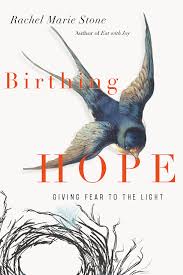 Birthing Hope: Giving Fear to the Light by Rachel Marie Stone
Birthing Hope: Giving Fear to the Light by Rachel Marie Stone
This award-winning memoir about birth, death, and the spaces in between will send tingles down your spine. Stone’s artfully-crafted reflections on faith and our reproductive decisions call us all to deeper, more intentional conversations about life’s greatest complexities. Weaving together lessons and errors from ancient texts, modern learning, and personal stories, this book includes discussions of contraception, abortion, disability, and AIDS.
Eloquent Rage: A Black Feminist Discovers Her Superpower by Brittany Cooper 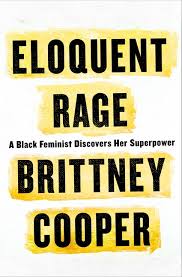
Both raw and personal, Cooper’s collection of essays about life as a Black woman in America is required reading for everyone. She explores topics like growing up as a Black girl in the South, the power of friendship, and Black feminism. Cooper also dives into her encounters with the church and how they have shaped her sense of self–for better and at times, for worse.
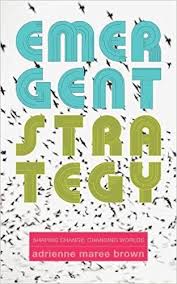 Emergent Strategy: Shaping Change, Changing Worlds by adrienne maree brown
Emergent Strategy: Shaping Change, Changing Worlds by adrienne maree brown
Fans of Octavia Butler’s Afrofuturism will devour Brown’s book–a hybrid of tactics, self-reflection prompts, personal stories, and group exercises aimed at doing the work of changing the world in a truly collaborative fashion. Advocates and activists, this would be an excellent book for your organization to discuss as a group and to consider how you might integrate some of her strategies and tactics into your work.
Pure: Inside the Evangelical Movement That Shamed a Generation of Young Women and How I Broke Free by Linda Kay Klein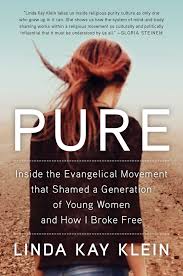
An unapologetic critique of the “purity industry,” Pure dives into the damaging, long-lasting effects of purity culture on the lives and relationships of those who were immersed in it as young people. Klein argues that “purity” is not a product of the evangelical Christianity alone, but one that secular culture upholds alongside the church.
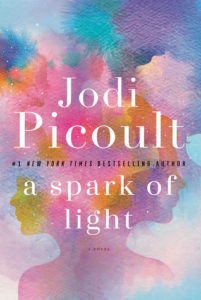 A Spark of Light by Jodi Picoult
A Spark of Light by Jodi Picoult
In her latest novel Picoult’s harrowing story of an anti-choice terrorist who enters Mississippi’s last remaining abortion clinic reads more like fact than fiction. Hour-by-hour, Picoult explores the thoughts, beliefs, and fears of those who oppose abortion, those who provide abortion care, and those who are desperate to terminate a pregnancy. One of the characters, Dr. Louie Ward who travels to the clinic to provide abortions, was inspired by our friend and colleague Dr. Willie Parker.
Is there a book you’d like for us to feature in a future Faith in Women book club discussion? Would you like our help in starting a book club of your own featuring one of these books? Please send us an email. We’d love to hear from you!
$4,863. That was the average annual cost of child care for Mississippi parents back in 2014. For full-time workers paid the state’s minimum hourly wage of $7.25, infant care would account for more than 30% of their monthly income–and that’s before taxes. With this high price tag coupled with no national paid parental leave policy, parents in Mississippi are often forced to choose between maintaining their livelihood and ensuring their children receive the care they need.
The Mississippi Child Care Payment Program (CCPP) is a voucher system designed to lessen the financial burden that child care costs create for low-income parents. By making child care more accessible to these families, the positive rippling effects of CCPP are felt not just by parents, but by everyone in the state: increased employment, reduced poverty, reduced absenteeism and turnover for employers, higher contributions of tax revenue into the general fund, and improved school readiness in children. But despite its benefits, CCPP currently serves just a fraction of eligible children. For too many low-income families, child care remains out of reach.
That’s why Carol Burnett, Faith in Women Board President, formed the Mississippi Low-Income Child Care Initiative (MLICCI)— to address this gap in coverage that 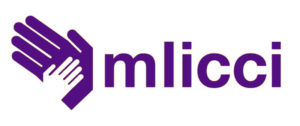 prevents parents, most of whom are women, from maintaining steady employment. Since 1998 MLICCI has focused on securing women’s economic security by advancing policies and direct service models that work to increase the availability of affordable child care for low-income working parents, to achieve gender equality in the state workforce, and to make the social safety net work for women. MLICCI tenaciously works to increase the number of low income working mothers served by the CCPP, to make access and retention of CCPP services easier for them, and to strengthen the financial viability of the child care centers that serve them.
prevents parents, most of whom are women, from maintaining steady employment. Since 1998 MLICCI has focused on securing women’s economic security by advancing policies and direct service models that work to increase the availability of affordable child care for low-income working parents, to achieve gender equality in the state workforce, and to make the social safety net work for women. MLICCI tenaciously works to increase the number of low income working mothers served by the CCPP, to make access and retention of CCPP services easier for them, and to strengthen the financial viability of the child care centers that serve them.
Because of their deep relationships with low-income single mothers and providers, MLICCI witnesses the many ways in which systematic racism and sexism impact the state’s current child care assistance climate. Single mothers face an inequitable workforce, and they comprise the majority of adults reliant on public safety net programs. All of these factors obstruct women’s economic security. In response to these realities MLICCI works at the intersection of racial justice and gender justice to advocate for policies and investments that strengthen women’s economic security.
The Mississippi Low-Income Child Care Initiative recently celebrated its 20th Anniversary. More than 100 MLICCI friends, supporters, and child care center directors from across the state joined us for the event where MLICCI released of a report detailing the 20-year history of the state’s Child Care and Development Fund (CCDF). Their key observation was this: “[W]hen Mississippi spends more on direct services, it serves more children and more parents can work or attend training or education.” In other words, an investment in affordable child care is an investment in Mississippi’s future.
To learn more about MLICCI, visit www.mschildcare.org
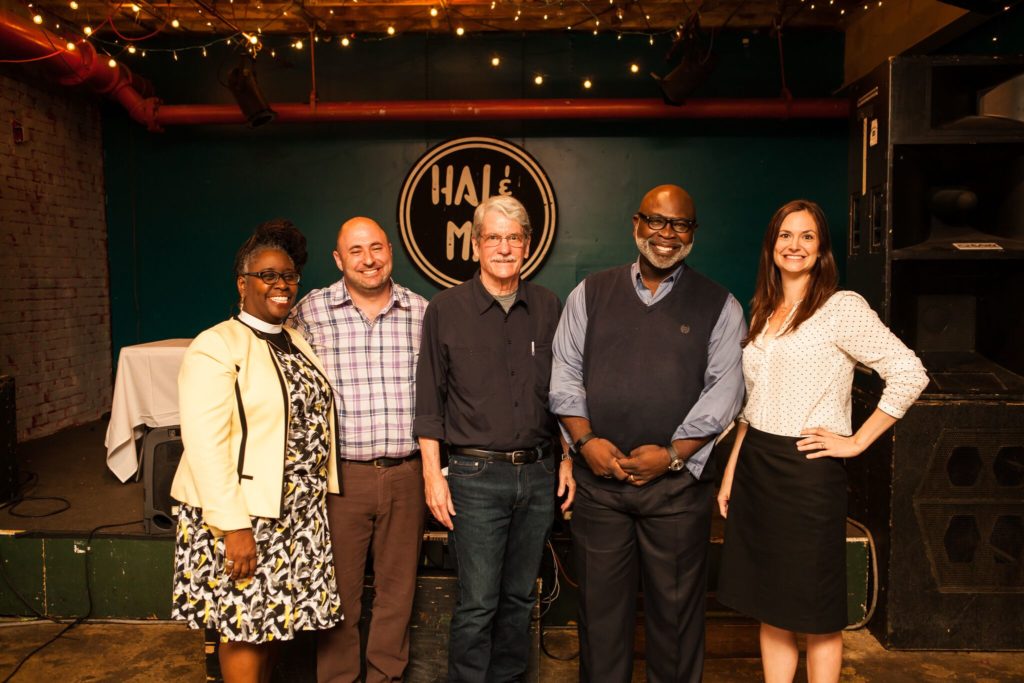
The faithful activism of Rev. Bill Kirby, a United Methodist pastor who helped lead the Missouri Clergy Consultation Service on Abortion, is tied to his long-held belief that God is love. Guided by Jesus’s commandment to “Love the Lord your God and love your neighbor as yourself,” Rev. Kirby felt called to assist nearly two thousand women experiencing unplanned pregnancies in the early 1970s, at a time when abortion was illegal, offering them non-judgemental, compassionate counseling known as All Options. “Even the use of the word ‘abortion’ was illegal,” he said. “We lived in the realm of knowing we could be in trouble.” If a woman in his care chose abortion, he and his colleagues made sure she could get one, even if it meant arranging a secret round-trip flight from Missouri to New York, where abortions were performed safely by trained physicians.
Rev. Kirby was one of three featured speakers at Faith in Women’s September event, “Called to Resist: The Pre-Roe Faith Movement that Saved Women’s Lives,” co-sponsored with the Religious Coalition for Reproductive Choice (RCRC). More than forty local clergy, churchgoers, health educators, and representatives of Mississippi-based reproductive health and rights organizations gathered in Jackson to learn about the history of the Clergy Consultation Service (CCS) and how its legacy continues to inform the prophetic work of reproductive health, rights, and justice advocacy today.
Historian Dr. Gillian Frank, a postdoctoral research fellow in the Program in American Studies at the University of Virginia, gave a brief overview of CCS’s history. At a time when abortion was a punishable crime, more than 2,000 Protestant ministers, Jewish rabbis, and dissident Catholic priests and nuns banded together to fight publicly for reproductive rights and to counsel hundreds of thousands of women on how they could access safe, compassionate abortion care. The underground networks they formed were robust: members were active in 40 U.S. states, 2 Canadian provinces, and in the city of Tokyo, Japan.
Why were these faith leaders willing to risk so much–their careers, their livelihood, even their freedom–for these women? They saw the devastating impact that illegal abortion was having on their communities. Back-alley abortion providers took advantage of desperate women, charging exorbitant fees to terminate their pregnancies and even worse, they often endangered their health and their lives in the process. “It became increasingly clear to clergy across the country that abortion restrictions were not preventing abortion,” noted Dr. Frank. “Rather, they were creating a public health crisis.”
The 1973 Roe v. Wade decision was a landmark moment for the CCS, whose members had advocated tirelessly for the legalization of abortion. But in Rev. Kirby’s eyes, it was also a moment when the CCS made a strategic error. “Once we got Roe, we quit. And that’s the mistake we made,” he commented. “We need to recover the moral high ground. We’ve given it up, and we can reclaim it.”
Dr. Willie Parker, a Christian abortion provider and author of the bestselling memoir Life’s Work, offered his insight as to how we reclaim our prophetic voice in this moment when the future of reproductive rights in the United States seems increasingly tenuous:
Let’s say hypothetically…that Roe goes away. Our task still doesn’t change. Women don’t lose their right to bodily autonomy and safe management of pregnancy. The question becomes what do we do next? If it’s non-negotiable that women have a right to safe termination of pregnancy and control of their lives, how creative are we going to be as people of goodwill?
Dr. Parker also emphasized that the intersectional analysis of the reproductive justice movement continues to be central in responding to the relentless political destruction of reproductive health and rights that has occured since the Roe decision. This expansive framework, he said, lends itself to the kind of coalition building we need right now—and that we will continue to need in the future.

Audience reaction was overwhelmingly supportive. For many attendees, the event was their first introduction to the history of the CCS. “I continue to be surprised to learn just how deeply involved faith leaders have been in this movement from early on, including advocating for safe, legal abortion and helping to provide care when it was still illegal in most states,” said one Jackson-based United Methodist minister. “I was also impressed with how strategic the CCS was in crafting an incredibly holistic movement that spanned several states and accounted for every detail of the process to help women have as smooth and safe an experience as possible. It was an amazing operation!”
Others considered their own faith perspectives as they listened to the speakers. “It’s so easy to lump all religious perspectives into one belief system or moral understanding of faith, grace, and health and healing. The movement is lead by people who are doing the work not in spite of their faith, but because of their faith,” commented one attendee. “That most resonates with me and my approach to life.”
To learn more about the Clergy Consultation Service on Abortion, check out RCRC’s interactive timeline.
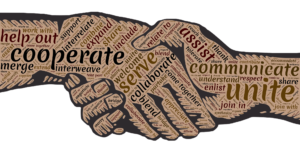 Everyday we’re inspired by the tireless efforts of so many advocates to improve the lives of women, girls, and families in Mississippi and beyond. To honor that work, this month we are highlighting three of our colleague organizations working at the intersections of faith and reproductive health, rights, and justice: Exhale, the Religious Institute, and SisterReach. Read on to learn about their prophetic leadership in these areas, and how you can get involved with their ongoing work.
Everyday we’re inspired by the tireless efforts of so many advocates to improve the lives of women, girls, and families in Mississippi and beyond. To honor that work, this month we are highlighting three of our colleague organizations working at the intersections of faith and reproductive health, rights, and justice: Exhale, the Religious Institute, and SisterReach. Read on to learn about their prophetic leadership in these areas, and how you can get involved with their ongoing work.

With its uniquely “pro-voice” approach, Exhale honors the breadth of abortion experiences and uses storytelling to shift the public conversation away from divisive labels and towards compassionate listening. Exhale’s Executive Director Rev. Susan Chorley, an ordained Baptist minister, preaches about her abortion experience to congregations around the country as part of Exhale’s Pro-Voice Tour.
In an interview with SELF magazine about the tour, Rev. Chorley said, “[Abortion] feels like an area that I’ve recognized the church is lacking in terms of supporting women’s experience—not that churches have to be supportive of abortion, but more that this is a reality for some women that are sitting in the pews.” By addressing the stigma surrounding abortion from the pulpit, Rev. Chorley brings visibility to a common, but invisibilized experience that many religious women have been too ashamed to name in their faith communities.
To learn more about Exhale and how you can support their work, visit exhaleprovoice.org.

The Religious Institute advocates for sexual, gender, and reproductive justice both within faith communities and beyond them. With a network of more than 8,500 people, they equip religious leaders and people of faith to bring their prophetic voice to the public square on issues concerning gender, sexuality, and our reproductive lives.
Abortion + Faith
In partnership with the Texas Freedom Network, Just Texas, and the Afiya Center, the Religious Institute has convened a series of trainings for clergy and lay leaders in Texas called Abortion + Faith. The training develops participants’ theological, pastoral, and congregational competency in the areas of reproductive access, reproductive justice, and abortion. Guided by theological reflection, informal presentations, and hands-on activities, the Abortion + Faith curriculum aids faith communities as they discern their call to advocate for reproductive justice in a hostile political and religious environment.
Webinars to Engage, Equip, and Inspire
Last summer the Religious Institute presented a webinar series entitled “Religious Resistance and Reproductive Justice” that focused on four thematic areas: Pastoral Care, Liturgy, Religious Education, and Preparation for Preaching. In partnership with subject matter experts, these webinars helped maintain faith leader advocacy engagement after what had been an exhausting six months of attacks on reproductive health, rights, and justice at the federal level. Recently the Institute presented a webinar entitled “When Seminaries Aren’t Safe: Sexual Assault and Harassment in Graduate Theological Education” that was facilitated by Rev. TiShaunda McPherson, a civil rights attorney, seminary graduate, and elder in the African Methodist Episcopal Church. You can view the webinars on the Religious Institute Youtube page.
To learn more about the Religious Institute’s work and to stay up to date about their latest campaigns, visit religiousinstitute.org.
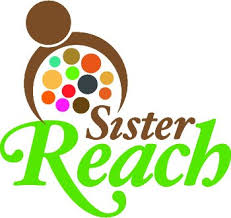
Founded in Memphis in 20011, SisterReach was the first Reproductive Justice organization established in the state of Tennessee. Through advocacy and education, SisterReach strives to support the reproductive health and rights of all women and young people through community conversations and engagement with faith communities.
Faith & Advocacy Toolkit
As part of their interfaith advocacy work, SisterReach has developed free resources for faith leaders and their communities to engage them in the movement for reproductive justice. The EDUCATE! Toolkit is designed with seminarians, clergy, and other people of faith in mind while the ADVOCATE! Toolkit is for community partners that might be interested in partnering with religious organizations and their leadership. You can download these free toolkits by signing up on their resources page.
To learn more about SisterReach’s mission in Tennessee and beyond, visit sisterreach.org.
Send us an email, and we’ll highlight them them in a future post.
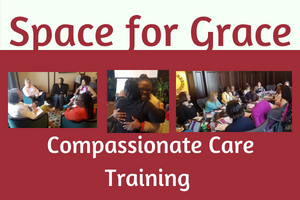
In partnership with the Religious Coalition for Reproductive Choice (RCRC), Faith in Women co-hosted and co-facilitated a two-day training called “Space for Grace: Compassionate Care for Reproductive Decision and Loss” in Jackson, MS.
The training curriculum was developed by RCRC as both an expansion and adaptation of previous training programs that historically centered on “pastoral care” and generally was offered only to clergy and faith leaders. The framework of compassionate care opens up the space for professionals across various sectors, including health care, advocacy, social work, and religion, to come together for a time of learning, skill-building, and networking.
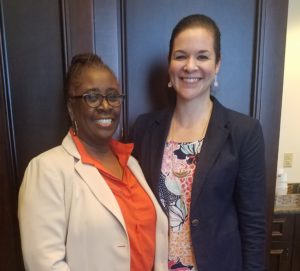
More than a dozen participants representing organizations from across the South attended the training to gain new skills and understanding around how to be both a compassionate presence and prophetic witness for reproductive health, rights, and justice in their communities. Among the cohort were nurses, activists, practitioners, non-profit leaders, scholars, and clergy, all of whom contributed valuable expertise and insight from their respective disciplines.
Rev. Susan Chorley, a Baptist minister and the Executive Director of Exhale, traveled from Boston to participate in the training. “The depth of the conversation among participants was impressive and the facilitation allowed us to create connection and community in a very short amount of time,” she remarked. “I left the training feeling hopeful and invigorated by the work ahead of us.”
Like Rev. Chorley we at Faith at Women are energized by the openness and commitment to justice we witnessed at the training. Though our challenges are many, we are heartened by the number of people working to improve the lives of Mississippi’s most vulnerable women and girls.
How To Get Involved
If you’re interested in attending a future training with Faith in Women and RCRC, we would love to hear from you. Send us an email, and we’ll be in touch.